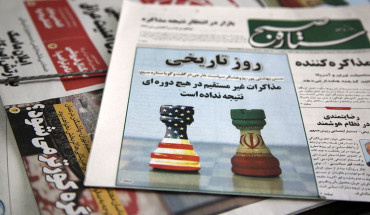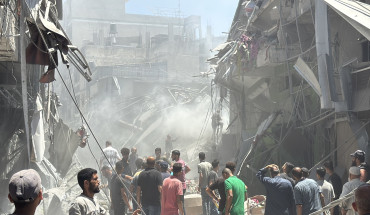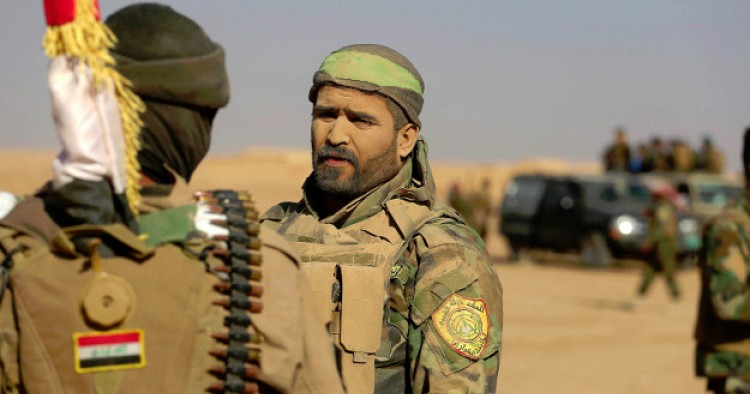The spokesman for Iraq’s Popular Mobilization Forces, also known as Hashd al-Shaabi, said on Wednesday that the paramilitary forces aim to seize and control all regions along the Iraqi-Syrian border from the Islamic State. “We will continue to cooperate with the Syrian government to make further advances and liberate our homeland from terrorists,” Ahmed al-Assadi pointed out in an interview with Syria’s state-run television. “We managed to cut off terrorists’ supply lines between Mosul and Sinjar,” he claimed, adding that the Islamic State in Iraq has lost more than 80 percent of its combat troops and equipment. The paramilitary commander further explained P.M.F. forces are advancing toward al-Qa’im, a town located 250 miles northwest of Baghdad and near the Syrian border, and will launch another operation to capture the districts of Hawijah west of Kirkuk, Shirqat town, north Baghdad, and the Hamrin Mountains in northern Salahuddin.
Comment: Iran-backed Shiite militia forces have made significant territorial gains in both Iraq and Syria in recent months. On the Iraqi side, P.M.F. units close to Iran have captured strategic regions and land routes that connect western Mosul to the Syrian border. The long-term objective of Tehran and its proxies is to maintain control over the key land routes that connect Damascus to Baghdad. Iran is also trying to carve out a land corridor to have access to the Mediterranean Sea through Syria and Baghdad. But while the Iran-backed forces for the first reached the Syrian border in northwestern Iraq, they still have a long way to go to reach the border on the Syrian side. Connecting Syria to Iraq will be a strategic prize for Iran and will also help the flow of fighters and weapons from Iraq into Syria to help the embattled regime of Bashar al-Assad.
On Tuesday, Hadi al-Amiri, the head of the Badr Organization, another Iran-supported P.M.F. group, said his forces would coordinate with the government of Bashar al-Assad for any operations inside Syria. “Iraq’s security will be maintained only if Syria’s security is preserved,” he emphasized. Amiri also claimed that efforts by the Syrian army and Iran-led forces to cut off the Islamic State’s supply lines inside Syria helped the P.M.F. forces a great deal to seize territory in western Mosul. “The P.M.F.’s access to the Syrian borders will also help the Syrian army to reach its own borders,” he emphasized, cautioning that his forces would not allow the U.S. military to interfere in who should police the Syrian-Iraqi border.
The Middle East Institute (MEI) is an independent, non-partisan, non-for-profit, educational organization. It does not engage in advocacy and its scholars’ opinions are their own. MEI welcomes financial donations, but retains sole editorial control over its work and its publications reflect only the authors’ views. For a listing of MEI donors, please click here.













